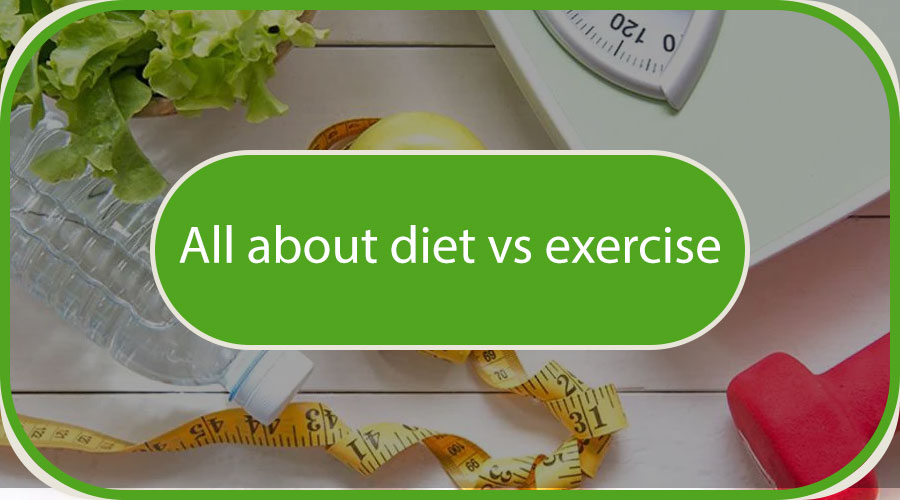
Mediterranean diet is a lifestyle modification that will help you lose weight, and keep your heart healthy. It is rich in heart-healthy foods and can help you live a healthier, longer life. These foods are high in calories but they're among the most healthy on the planet. The best part about this diet is you can eat whatever you want, just make sure that you are not eating too much.
A Mediterranean diet is based the belief in eating a wide range of foods to help prevent heart disease. This diet is rich in fruits and vegetables as well as healthy fats. Red wine and poultry are still allowed. The diet encourages eating whole foods rich in nutrients and limiting added sugars and sodium. It promotes healthy eating habits and a healthy lifestyle.

The Mediterranean diet does not contain much red meat. However, it does contain small amounts nuts and eggs. Research has shown that consuming these foods can reduce the risk of heart disease by 30 percent. Reduced risk of heart disease, stroke, dementia and other conditions can be found in the Mediterranean diet. There are also many other benefits, and you can find out more about them by reading this Mediterranean diet review. You can also start a new lifestyle by incorporating more of these foods into your diet.
The American Heart Association has reviewed the Mediterranean diet and found many health benefits. It lowers your risk of ischemic heart disease and hypertension, and it is especially good for diabetes. However, not everyone will be able to eat the Mediterranean diet. Women should consume no more than one 5-ounce glass of wine per day. Men should consume up to two glasses. Moderate dairy consumption is another benefit to the Mediterranean diet. It's a high-fiber, fiber-rich diet that is full of nutrients.
The Mediterranean diet is also rich in fibre. Wholegrains, when compared to white bread, are more filling than refined flour. Although Mediterranean diets are low in fat, they are high in monounsaturated oils. This means that it is less likely for you to develop heart disease. It's also lower in trans fat and saturated fat. In addition, a Mediterranean diet is rich in antioxidants.

High levels of antioxidants are also found in the Mediterranean diet. It has been shown to lower the risk of stroke, Alzheimer's disease and dementia. Its antioxidants protect against harmful free radicals. The antioxidants in the Mediterranean diet have been shown to help protect the body against oxidative damage from free radicals. This has been shown to reduce the risk of certain types of cancer and cardiovascular disease. In this Mediterranean diet review, we will explore how to get the most out of the Mediterranean diet for diabetes.
FAQ
Do I have to do it every day?
No! You should do at least 30 mins of moderate-intensity activity 5 days per week. That means walking fast enough to be slightly out of breath or biking hard enough to sweat.
Why Metabolic Well-being is the Key to Aging Well
People live longer lives than ever before. As they live longer, they also get sicker. And while we've made great strides in medical science, it's becoming increasingly clear that our current approach isn't working.
We need to change how we think about health and aging. Healthy aging is possible only if we look at our metabolic health, not just weight loss, but also overall well-being.
And if you want to live an active life for decades to come, you should ensure that your metabolism stays strong and healthy throughout your entire lifetime.
The good news is that there are many ways to improve your metabolic health. These 7 foods can be incorporated into your diet.
-
Blueberries contain resveratrol, which has been shown to help support cellular longevity. They are also rich in vitamins C & E and antioxidants.
-
Lentils and pinto beans, which are legumes, provide great fiber and plant-based sources of protein. These nutrients help maintain blood sugar levels so they don’t spike and fall.
-
Broccoli has sulforaphane. It has been proven to protect cells from DNA damage. It could even slow down the growth of cancer.
-
Chia Seeds have high levels of omega-3 fatty oils and fiber. They are rich in protein and antioxidants. All these nutrients support heart health, brain function and gut health.
-
Green tea contains catechins, which are polyphenols. Studies have shown that green tea contains catechins which are linked to lower bone fractures and cardiovascular disease. They also reduce cognitive decline and diabetes risk.
-
Salmonis one of the best sources of lean protein, low in saturated fat, and packed with vitamin D.
-
Walnuts are rich sources of omega-3s and antioxidants, such as alpha lipoic (ALA). ALA is an antioxidant that protects against inflammation. It also boosts energy production.
How many calories should I eat daily?
This will vary from person-to-person. An average person needs 2000-2500 calories per day. It is important to consider your lifestyle and determine how many calories you'll need.
Do Men Need A Gym Membership?
Men do not need a gym membership. A gym membership will make your money more valuable.
Most gyms offer free trial members, which allows you to use the facilities without paying anything.
The gym is open to all, and you don't have to pay anything. You can cancel your membership at any time, no matter how much you like it.
Cardio Exercise: Good or Bad for Your Health?
Cardiovascular exercise is a great way to improve your cardiovascular health. It increases blood circulation, strengthens the heart muscle, boosts stamina, aids in weight loss, and gives you more energy.
Cardiovascular exercise includes running, biking, hiking, swimming, tennis, basketball, soccer, volleyball, football, etc.
Cardio exercises should not be done at high intensity. This could result in injury.
Cardiovascular exercise should be done only if you feel well.
Do not push yourself to the limit. Otherwise, you could end up injuring yourself.
When you engage in cardiovascular exercise, it is best to warm up first. Start slowly increasing your intensity.
Remember, you should always listen to your body. If you feel pain, stop doing cardio exercise immediately.
Also, after a cardiovascular workout, it's advisable to take a rest. This will allow your muscles to rest.
Cardiovascular exercise is an important part of losing weight.
It is the best method to lose calories and reduce belly weight.
What if I exercise and drink alcohol?
Yes. Alcohol can increase energy expenditure and speed up recovery, as well as reduce soreness.
Alcohol also increases insulin sensitivity, making it easier to absorb glucose.
Alcohol can also cause dehydration which can lead to a slower metabolism. It also reduces testosterone production, which may decrease muscle-building potential.
These are the reasons women should not drink alcohol before going to work out. Women who drink heavily should wait at LEAST 24 hours before they start working out.
Nursing mothers should abstain from alcohol as much as they can.
Men should limit their intake to one drink per day.
Statistics
- According to the American Heart Association, blood pressure should be checked at least once every two years, beginning at age 20. (my.clevelandclinic.org)
- Cardmembers earn 5% Back at Amazon.com with a Prime Credit Card. (amazon.com)
- By John Thompson Take a whopping 38% off a set of PowerBlock Pros. (menshealth.com)
- Get free shipping and 25% off today. (healthline.com)
- Candidates and applicants must pass all four tests at 70% (minimum level) to graduate from Basic Deputy U.S. Marshal (BDUSM) Training. (usmarshals.gov)
External Links
How To
What nutrients does a man require daily?
Daily nutrition is essential for men's healthy growth. Vitamins, minerals, vitamins, nutrients, carbohydrates, fats and fiber are all essential for the body.
You also need specific nutrients for different times in the day. To give you an example, the body uses energy it receives from food to make hormones and antibodies. When you wake up, your body uses protein to repair damaged tissue and build muscles.
Your body will burn fat at night and store the extra energy as a form of glycogen. Your body requires fewer calories, but still needs enough nutrients. If you feel hungry, you can have a snack in the evening.
You need to eat enough carbs and protein when you exercise. Muscle soreness can occur if you work out hard.
You must ingest carbs and protein within two hours of training to prevent this. To provide energy, your body will begin to break down stored glycogen.
Additionally, it is important to eat protein right away after your workouts are over. This will prevent muscle tissue from being damaged while you sleep.
Lactic acid is produced by the body during periods of intense exercise. Your body can build up lactic acid in the bloodstream which causes fatigue. You can avoid this by eating carbohydrates-rich foods like fruits and veggies.
Carbohydrates provide energy for your body to recover after strenuous exercise.
A healthy diet should include lean meats such as fish, eggs and milk, cheese, yogurts, beans, seeds, nuts, and beans.
All of these foods have high-quality protein. Protein promotes muscle growth, and helps repair damaged tissues. Protein is also necessary for the production of sex hormones such as testosterone.
A healthy skin, nails and joints requires sufficient dietary fats. Healthy men need between 20% - 35% of the total caloric intake to be fat.
Fat is good for your heart and helps you fight cancer. It keeps your brain healthy and functioning well.
Most of the fat you need can be obtained from vegetable oils, including sunflower oil (or soybean oil), peanut oil, peanut oil, soybean oil, and peanut oil.
These oils are high in monounsaturated fatty acids (MUFAs). MUFAs help lower cholesterol and reduce inflammation. They protect your cells against free radical damage.
Saturated fats (SFAs) are found mostly in animal products like meat, dairy products, and butter. SFAs are known to raise LDL ("bad") cholesterol and raise triglycerides. They promote weight gain and abdominal fat.
Plant-based fats such as vegetable oils, seeds, nuts and grains contain polyunsaturated (PUFAs). PUFAs can improve cardiovascular function and reduce inflammation. They help to control blood sugars and cholesterol.
Erectile dysfunction can often be a problem for men who have low HDL ("good") levels of cholesterol. A high intake of saturated fats leads to higher levels of bad cholesterol.
Men who eat lots of red meat or pork can develop prostate problems. This is because these foods contain high amounts of nitrates. If cooked at high temperatures, the nitrates become nitrosamines. These compounds can cause lung cancer.
Many processed meats are high in nitrites, and other dangerous chemicals. These chemicals should be avoided.
According to the American Heart Association, you should limit your consumption of red meat to no more that 2 meals per week. Choose poultry, fish and legumes instead.